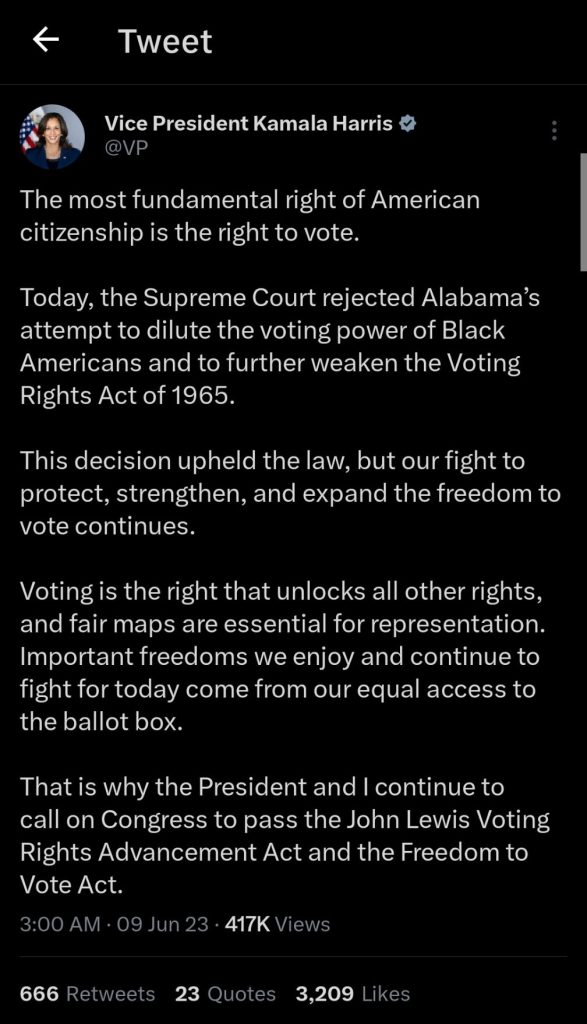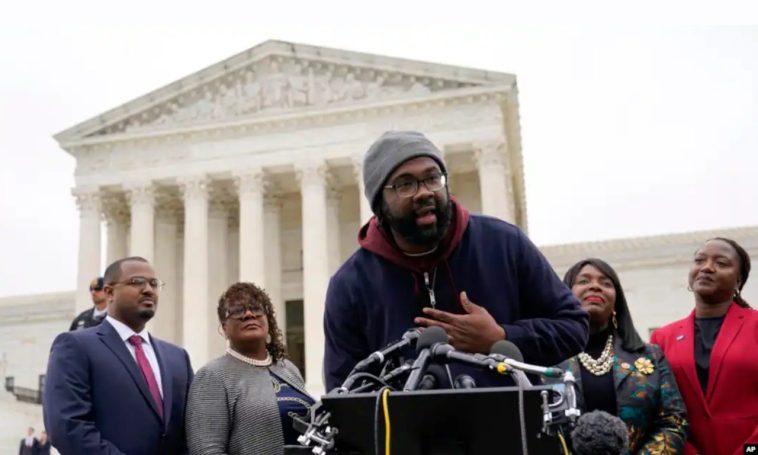The US Supreme Court has ruled that an Alabama electoral map violated federal law prohibiting racial discrimination in voting.
The 5-4 decision backed a lower court’s ruling that the state’s Republican-drawn map had diluted the voting power of black Alabamians.

In a 5-4 ruling, the court said that the congressional map — which had only one majority Black congressional district out of seven, in a state where more than one in four residents is Black, likely violated the landmark civil rights-era Voting Rights Act.
The map, outlining the state’s seven districts for the US House of Representatives, was approved in 2021.
The ruling preserves a key element of the landmark 1965 Voting Rights Act.
The case was closely watched due to its potential to further weaken the Voting Rights Act, which was passed in 1965 and sought to prevent Jim Crow-era racial discrimination in US voting.

Several Supreme Court rulings in recent years have chipped away at the legislation, most notably a 2013 decision that blocked a provision of the law that required states with a history of discriminatory voting practices to face federal review of new laws and procedures.
In the ruling, Chief justice Roberts declined Alabama’s request for the court to change its interpretation of Section 2 of the Voting Rights Act, which prohibits voting practices that racially discriminate.

“We find Alabama’s new approach to §2 compelling neither in theory nor in practice. We accordingly decline to recast our §2 case law as Alabama requests.” Chief Justice Roberts wrote.
At issue was the map approved in 2021 by the Republican-controlled state legislature setting the boundaries of Alabama’s seven U.S. House of Representatives districts.

The map featured one majority-Black district, with six majority-white districts, even though Black people comprised 27% of Alabama’s population.
The ruling on Thursday affirmed the lower court’s order that Alabama configure a second House district where Black voters could hold a “a voting-age majority or something quite close to it.”
That marked a shift from an emergency 5-4 ruling the court issued last year that let Alabama use the disputed map for the 2022 U.S. congressional elections in which Republicans seized control of the House from Democrats.







GIPHY App Key not set. Please check settings